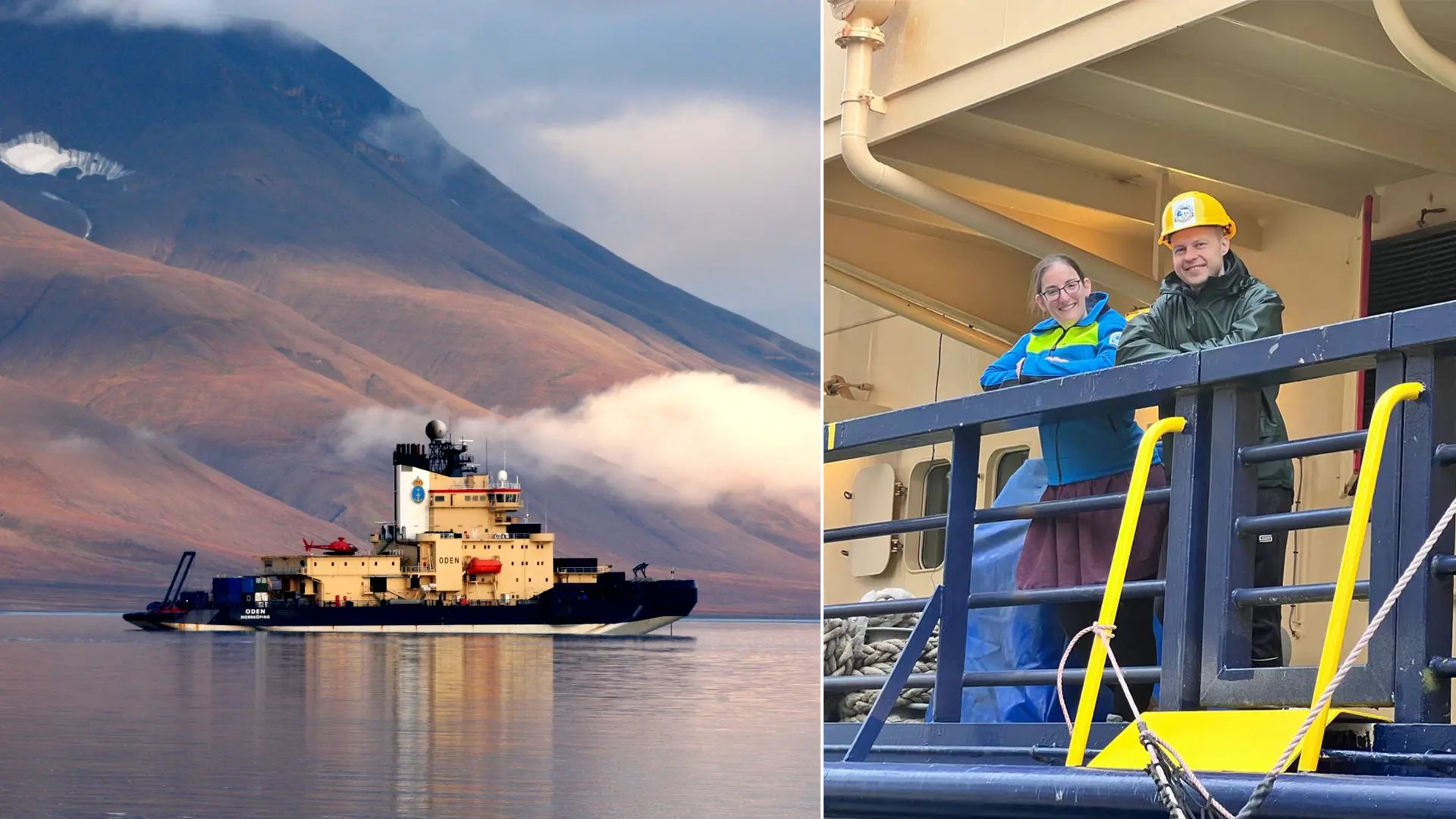
On May 7, Chalmers researchers Luisa Ickes and Denis Demchev board the icebreaker Oden, to meet spring in the Arctic Ocean together with 40 other researchers. The goal of the expedition is to find out, among other things, when the Arctic ice begins to melt and which processes affect the melting.
Arctic expeditions with the icebreaker Oden are usually carried out from July to September, when the sea ice is easiest to get through. But in 2023, the researchers leave in May to get to the Arctic Ocean at the beginning of the melting season. The researchers on the ARTofMELT (Atmospheric rivers and the onset of sea ice melt) expedition want to find out, among other things, when the ice starts to melt and what affects the melting.
While Chalmers researcher Denis Demchev will observe the movements and dynamics of the ice, Luisa Ickes will focus on the air, and more specifically, what the air contains.
As spring approaches, powerful flows of warm and moist air enter the Arctic from the south. The warm air brings many pollutants and particles to the Arctic, from emissions from cities and other sources in Europe.
- So the hypothesis is that this warm and moist air triggers the melting of the ice. The expedition will measure temperature and humidity in the air, but what I will focus on is which particles accompany the air flows. Are those particles different from the few particles already in the Arctic, and if so how? says Luisa Ickes.
- To investigate it, we have a huge "vacuum cleaner" mounted on the ship. It will suck in the air, and then we will measure and analyze the chemical composition of the particles that get stuck in the vacuum cleaner's filter, says Luisa. She and her colleagues Denis Demchev at the division of Geosciences and remote analysis at Chalmers are part of the international research project together with researchers from 19 different universities.
Facilitate future climate models
Once Oden is in the North Atlantic part of the Arctic Ocean, the goal is to get to the areas where warm air pushes up from the south. Using customized weather forecasts, the icebreaker Oden will navigate to positions where warm air is expected to arrive. Then detailed observations will be made with a focus on understanding important processes.
There is not much previous research on the air currents, but there is research that suggests they become more frequent, stronger, and longer lasting in a warmer climate. In order to more reliably assess the climate in the future - in the Arctic and globally - computer models are needed in which both these air currents and the processes they set in motion are correctly described. And to achieve that requires an understanding that can only be based on on-the-spot observations.
For Luisa Ickes, the six-week expedition will be a welcome addition to her research, which on a daily basis largely consists of constructing and analyzing computer models of the atmosphere.
– It is going to be fun! I use the kind of data that we are going to collect in my research, but I think it is also good that as a researcher to understand more about where the data comes from, and what uncertainty there is in the numbers. We also may need to adjust the way in which we collect the data. You get a completely different feeling for what you are working with! says Luisa Ickes.
Read more:
The research expedition ARTofMELT (Atmospheric rivers and the onset of sea ice melt) is organized by the Polar Research Secretariat and is carried out with the icebreaker Oden rented by the Norwegian Maritime Administration. 39 researchers from 19 universities in ten countries are participating on the ship. Also participating in the expedition is the artist Ida Rödén, who has been awarded a place in the Polar Research Secretariat's artist program.
Pictures:
Odin: Bjoertvedt, CC BY-SA 3.0 via Wikimedia Commons.
Luisa Ickes and Denis Demchev: Stella Papadopoulou, Stockholm University